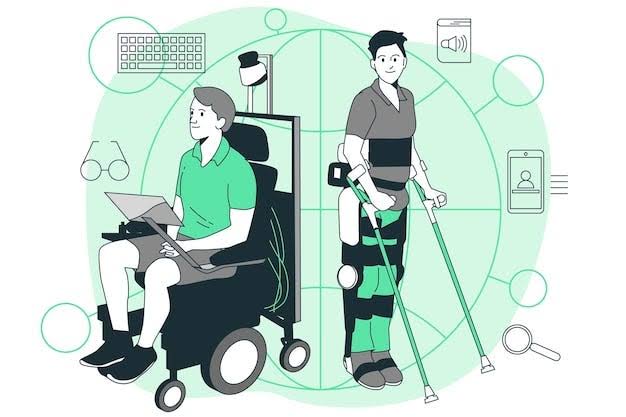Travel in 2025 is no longer what it used to be a decade ago. The way people plan, book, experience, and document their journeys has undergone a massive transformation, largely driven by technology. Innovations in artificial intelligence, digital mapping, wearable tech, and automation are reshaping how we explore the world.
Gone are the days of paper maps, printed tickets, and manual bookings. Today, digital tools not only enhance convenience but also offer a more personalized and immersive travel experience. As technology continues to advance, its influence on global tourism is becoming more profound.
Smarter Planning with AI Travel Assistants
One of the biggest changes in the travel industry is how trips are now planned. In 2025, AI-powered travel assistants such as Google’s Gemini Travel, Apple Travel AI, and ChatGPT-based itinerary planners help users build customized travel plans in seconds.
These tools analyze preferences, travel history, budget, and even current travel trends to suggest destinations, accommodations, and activities. Instead of manually searching hundreds of sites, travelers now receive intelligent, real-time recommendations that evolve with each query.
AI tools also factor in weather forecasts, visa requirements, local events, and even flight delays to create dynamic plans that adapt seamlessly to changing situations.
Mobile Apps as the Ultimate Travel Companion
Smartphones have become indispensable for travelers. In 2025, mobile apps handle everything—from booking flights and hotel rooms to language translation and navigation. Super apps like Hopper, TripIt, and Booking.com now integrate multiple services into one dashboard, reducing the need to juggle different platforms.
With just a few taps, travelers can receive check-in alerts, digital boarding passes, car rental options, and sightseeing guides. Augmented reality (AR) features have been added to some of these apps, allowing users to scan landmarks and instantly learn about their history or nearby attractions.
Thanks to biometric authentication, security is also enhanced, enabling mobile apps to store travel documents safely and securely.
Digital Passports and Biometric Borders
The traditional passport is being slowly phased out in favor of digital identity systems. By mid-2025, several countries including Singapore, the Netherlands, and Australia have adopted e-passports that link with biometric data like facial recognition and fingerprints.
Travelers at major international airports now pass through biometric gates, reducing wait times and human error. These systems not only speed up customs clearance but also tighten border security by verifying identities with high accuracy.
Biometric travel cards and mobile-based digital IDs are expected to become the global norm within the next five years, according to international aviation authorities.
Virtual and Augmented Reality for Exploration
Virtual Reality (VR) and Augmented Reality (AR) are redefining how people experience destinations. Before booking, travelers can now take virtual tours of hotels, museums, or scenic routes using platforms like VRTrip360 or Meta Horizon Travel.
Once on-site, AR glasses or mobile apps overlay useful information on real-world environments. Travelers can scan signs, read translations, identify constellations, or receive audio narration as they walk through historic sites.
In 2025, museums, national parks, and cultural landmarks are embracing this technology to create more interactive and educational experiences for tourists.
Real-Time Translation Breaking Language Barriers
Language is no longer a barrier to global exploration. In 2025, real-time translation technology has become far more accurate and accessible. Devices like the PocketTalk X4 and Google Pixel Buds Pro now offer instant voice translation in over 70 languages.
These tools allow travelers to hold live conversations, understand menus, or follow directions without any prior language training. Smartphone apps have also integrated offline translation features, helping travelers in remote areas without internet access.
By reducing miscommunication and enhancing interaction with locals, translation technology is making travel more inclusive and enjoyable.
Smart Wearables Enhancing Safety and Navigation
Wearable technology plays a major role in travel safety and efficiency. Smartwatches, AR glasses, and GPS-enabled fitness bands help travelers stay connected while navigating unfamiliar environments.
In 2025, wearables now include emergency alert systems that notify authorities or loved ones in case of distress. These devices also provide real-time updates on public transportation, local weather, and even air quality.
Some high-end smartwatches come with embedded language translation, itinerary notifications, and currency conversion, making them essential companions for modern travelers.
Sustainable Travel Powered by Technology
Environmental awareness is influencing travel decisions more than ever, and technology is helping travelers make greener choices. Carbon calculators are integrated into booking sites, allowing users to see the environmental impact of their flights or hotel stays.
Electric vehicle (EV) rentals, solar-powered accommodations, and eco-tourism platforms are easier to find thanks to digital filtering tools. Apps like GreenGo and EcoTraveler offer eco-rated hotels, ethical wildlife tours, and suggestions for reducing waste while on the move.
Airlines are also adopting AI to improve fuel efficiency, optimize routes, and reduce their carbon footprint, making travel more sustainable for future generations.
Social Media and Digital Storytelling
Technology has changed not just how we travel, but also how we share those experiences. In 2025, travelers continue to use platforms like Instagram, TikTok, and YouTube to document their journeys in real-time.
Advanced smartphone cameras, drone footage, and editing apps enable users to produce high-quality content without needing professional gear. AI-generated captions, auto-editing tools, and travel content templates make storytelling effortless and engaging.
For many travelers, creating and sharing digital content is now an essential part of the travel experience, shaping trends and influencing others’ destination choices.
Travel Safety and Real-Time Alerts
Staying safe while abroad is easier thanks to real-time updates and smart alerts. Government travel advisory apps, like the UK’s TravelSafe or the U.S. STEP Program, send alerts for political unrest, weather emergencies, or health outbreaks.
GPS tracking apps allow travelers to share live locations with friends or family. In 2025, many tour operators also include built-in safety apps in their packages, enabling tourists to check in, receive location-specific advice, or request assistance instantly.
Technology not only makes travel more secure but also offers peace of mind for loved ones back home.
Autonomous Transportation and Smart Cities
Self-driving technology is becoming more common in tourism hubs. In cities like Tokyo, Dubai, and Helsinki, autonomous shuttles transport tourists between landmarks. Some hotels now offer AI-powered valet parking or robotic luggage handlers.
Ride-hailing services powered by AI match travelers with the most efficient routes and affordable fares. Smart traffic systems adjust signals in real-time to improve flow, while mobile apps inform travelers of the best routes based on live congestion data.
In 2025, tech-driven infrastructure is making city exploration smoother, safer, and more efficient.
Conclusion: A New Era of Exploration
Technology is changing the face of global travel in profound ways. From planning to arriving home, every step of the journey has become more efficient, personalized, and interactive.
In 2025, travelers are empowered with tools that were once considered futuristic. Whether it’s booking a trip with AI assistance, exploring a city with AR glasses, or navigating safely through biometric borders, the modern travel experience is being redefined.
As innovation continues, the future of exploration will likely become even more seamless, sustainable, and connected—offering endless possibilities for curious minds and adventurous souls.



